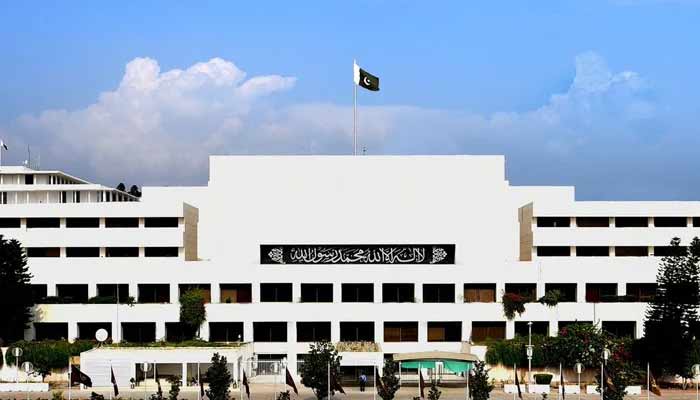The future of democracy
Study reveals that trust in parliament is declining in 36 democracies, including Argentina, Brazil, France and Italy
October 19, 2025

In recent years, the global political landscape has witnessed a notable decline in political trust in public institutions. This is largely due to the rise of populist political leadership that gains power by bypassing traditional political institutions and appealing directly to the public.
The rise of this trend has profound implications for the public’s trust in political institutions, particularly parliament. This trend often gives rise to authoritarian regimes and an arbitrary culture of governance that undermines the legitimacy of democratic institutions. In many cases, concentration of power in a few hands leads to the erosion of democratic governance.
Around the globe, countries that once enjoyed a robust public trust in their political institutions have seen their political landscapes shift dramatically.
A critical and comparative study from the University of Southampton, on "Global Trends in Institutional Trust" published in the British Journal of Political Science, has found that trust in representative institutions – such as parliaments, governments, and political parties – has been declining across democratic countries. The study warns that this decline has become a central challenge to democracy and could pave the way for non-democratic leaders to use the state in increasingly autocratic ways.
This study reveals that trust in parliament is declining in 36 democracies, including Argentina, Brazil, France, Italy, Spain, South Korea, Australia, the US, the UK and Latin America.
In Pakistan, this low political trust in political institutions appears to be linked to the rise of populist parties and successive governments’ inability to respond effectively to citizens' socio-economic demands, including those arising from natural disasters such as recent floods, and to meet social security needs.
Yet, there is still evidence that citizens largely support the idea of democracy, but they have lost faith in the political institutions that are necessary for democratic governance.
If the exercise of periodic general elections is a test of measuring the health of democracy, then the democratic institutions of Pakistan, in the last couple of years, can claim to be in good health. Of course, frequent elections without accountable and stable governments point to a deeper malaise and growing public scepticism toward democratic institutions.
With declining political trust, we assume that we are experiencing a "crisis of democracy" around the globe and, at least, "trendless fluctuations" in Pakistan. In Pakistan, the decline in political trust reflects discontent not with democracy as a political system, but with governance itself. Evidence in this case is the Free and Fair Election Network’s report on voter turnout in the 2024 general elections.
Despite undemocratic actions, such as fears of political violence, terrorism and uncertainty about the conduct of elections, about 60.6 million voters exercised their right to vote in the February 2024 general elections, which is to say that nearly 5.8 million more people voted in the 2024 elections as compared to the 2018 general elections, when 54.8 million people cast their votes.
This is to say that declining trust in democratic institutions is not inevitable in the Pakistani case. If it is something about the way democratic institutions' policies that citizens distrust, probably those policies need to change. This change may well be in the direction of more democracy within the political parties that serve as an agent between the citizens and the democratic institutions.
Political scientists have long debated the link between the state of democracy within political parties and the overall health of democracy. Drawing on literature on electoral democracy, we propose that parties are in trouble and, thus, so is democracy, at least in Pakistan's case. In other words, the health of democracy is linked to the state of democracy within political parties.
While parties are centred on the agency of political trust of people in parliament, it is suggested that, at the heart of reforms to protect the integrity of the electoral process, there is a dire need to introduce platforms for citizens' petitions, freedom of information legislation and the open government agenda, and participatory budgeting. The same applies to our final party arena – parties as organisations — although in this instance the reforms relate to the parties themselves.
When it comes to organisational change within parties, there is a need for a set of reforms that include giving party members more say in key decisions over areas such as candidate selection or the election of the party leaders.
Such reforms can, at least ostensibly, help regain public trust in government institutions and re-engage party activists. The potential step in this regard could be digital parties that provide more promising evidence of the use of deliberative processes by parties.
In Pakistan, parties get a bad rap. For some, they are the source of many contemporary problems of governance, whereas for others, parties are seen as a shadow decline in democracies. In the last analysis, parties are facing all sorts of challenges in contemporary Pakistan.
However, they still can have a future if party leadership begins to think beyond electoral politics and introduces internal democratic innovations that can strengthen democracy and rebuild political trust..
In democratic cultures, change in political trust can reflect a shifting gap between the expectations of citizens and what institutions deliver. Since there is no one silver bullet for reviving public trust, improvements in it could be made through political stability, rule of law, a citizen-centric public policy that is a constitutional imperative as well as by promoting an inclusive, accountable, pluralistic and democratic parliament.
The writer holds a PhD in Parliamentary Studies and is the author of ‘The Senate of Pakistan and Regional Representation’ (Bloomsbury, USA)
Disclaimer: The viewpoints expressed in this piece are the writer's own and don't necessarily reflect Geo.tv's editorial policy.
Originally published in The News











